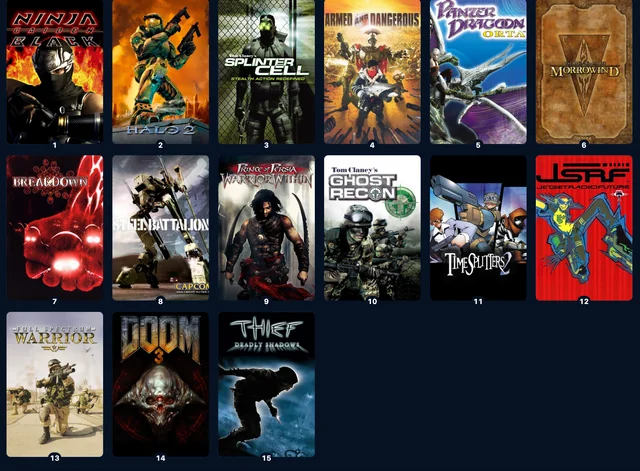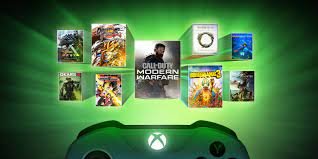Since its debut in 2001, Xbox has been a dominant force in the gaming industry, revolutionizing home entertainment with cutting-edge technology, exclusive games, and an immersive online experience. This article explores the history of Xbox, its key features, impact on gaming, and what the future holds for Microsoft’s gaming console.
The History of Xbox
The Birth of a Gaming Giant
Microsoft launched the first Xbox in 2001, aiming to compete with Sony’s PlayStation 2 and Nintendo’s GameCube. With a built-in hard drive and an online gaming service, Xbox Live, the console set new standards for gaming and online connectivity.
Key Console Generations
Xbox (2001) – The Beginning
The original Xbox marked Microsoft’s entry into the gaming market. It introduced Halo: Combat Evolved, a game that defined first-person shooters for years to come. The console also featured the first iteration of Xbox Live, allowing players to compete online—a feature that set the stage for future consoles.
Xbox 360 (2005) – The Breakthrough
The Xbox 360 was a game-changer, offering HD gaming, a robust online marketplace, and a vast library of games. Exclusive franchises like Gears of War, Fable, and Forza Motorsport cemented Xbox’s place in gaming history. The console also pioneered digital game distribution via the Xbox Live Marketplace.
Xbox One (2013) – A New Era
The Xbox One focused on multimedia capabilities, offering a home entertainment system alongside gaming. While it initially struggled due to a focus on TV integration, later updates introduced backward compatibility, enhanced performance, and Game Pass, which redefined game accessibility.
Xbox Series X|S (2020) – The Next Generation
The latest Xbox consoles, Series X and Series S, emphasize 4K gaming, ultra-fast load times, ray tracing, and an SSD-based architecture. These consoles represent Microsoft’s continued commitment to gaming innovation.
Xbox Features and Innovations
1. Xbox Game Pass and Cloud Gaming

Xbox Game Pass has revolutionized gaming subscriptions by offering access to hundreds of games for a monthly fee. With Cloud Gaming (xCloud), players can enjoy games on various devices without needing a console, making Xbox more accessible than ever.
2. Backward Compatibility
One of Xbox’s strongest features is its commitment to backward compatibility. Unlike some competitors, Microsoft ensures that older games remain playable on newer consoles, preserving gaming history.
3. Performance and Hardware
The Xbox Series X is one of the most powerful consoles ever, featuring ray tracing, 120 FPS gaming, and SSD storage for ultra-fast load times. The Series S offers a budget-friendly option while still providing a next-gen experience.
4. Controller Evolution
Xbox controllers have evolved with each generation, introducing features like haptic feedback, customizable buttons, and ergonomic designs. The Elite Series 2 Controller offers high-end customization for competitive gamers.
Top Xbox Games of All Time

Some of the best Xbox-exclusive titles include:
- Halo Series – The flagship first-person shooter franchise.
- Gears of War Series – Intense third-person action with a deep story.
- Forza Horizon Series – One of the best racing game franchises.
- Fable Series – A beloved RPG with humor and choice-based gameplay.
- Starfield – Bethesda’s ambitious space exploration RPG.
Xbox’s Impact on the Gaming Industry

1. Online Multiplayer and Xbox Live
Xbox pioneered online multiplayer gaming with Xbox Live, setting the standard for digital connectivity in consoles. Subscription-based services like Xbox Live Gold and Game Pass Ultimate provide players with access to online gaming, free monthly games, and exclusive discounts.
2. Game Subscription Model
Microsoft changed gaming with the introduction of Game Pass, which offers a Netflix-like model for games. This innovation has influenced competitors like PlayStation and Nintendo to rethink their subscription services.
3. Acquisitions and Exclusive Titles
Xbox has acquired major gaming studios, including Bethesda, Obsidian, and Activision Blizzard, to expand its portfolio of exclusive games. These acquisitions have strengthened Xbox’s position in the industry and increased its influence in cloud gaming.
The Future of Xbox
1. AI and Cloud Gaming Expansion
Microsoft is investing heavily in AI and cloud gaming, aiming to make Xbox available on multiple platforms beyond traditional consoles. Cloud streaming will enable players to enjoy high-quality gaming experiences on smartphones, tablets, and smart TVs.
2. Next-Gen Game Development
The next generation of Xbox games will leverage AI-driven NPCs, more realistic physics, and enhanced multiplayer experiences. With the power of machine learning and ray tracing, game worlds will become more immersive than ever.
3. Cross-Platform Integration
Microsoft is focusing on cross-platform gaming, allowing Xbox players to compete with PC and PlayStation users in online multiplayer games. This approach ensures that Xbox remains relevant in an evolving gaming ecosystem.
4. Sustainability and Green Gaming
Xbox is taking steps toward sustainability, with eco-friendly hardware manufacturing and energy-efficient consoles. Microsoft aims to make gaming more environmentally responsible.
Conclusion
Xbox has continuously pushed the boundaries of gaming with cutting-edge technology, exclusive titles, and seamless online experiences. As Microsoft focuses on cloud gaming, AI, and next-gen hardware, the future of Xbox looks brighter than ever. Whether you’re a casual gamer or a competitive player, Xbox remains a cornerstone of the gaming industry, shaping the way people play and experience games.
Liberation Day: History, Significance, and Global Celebrations






